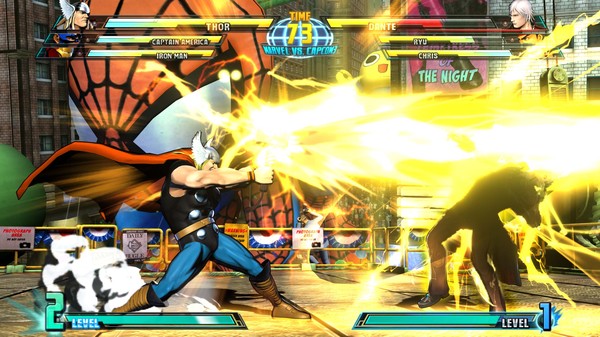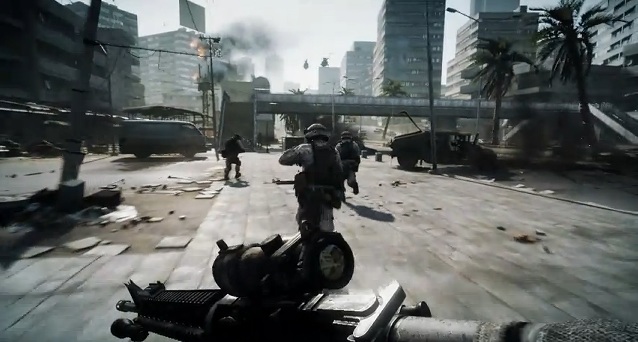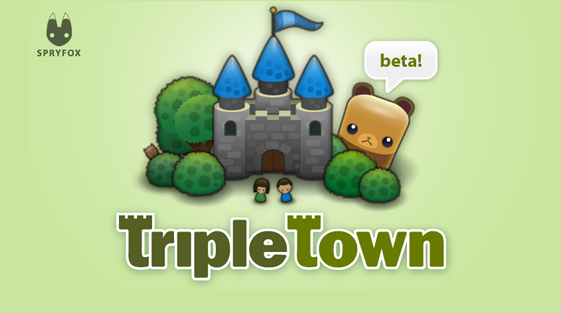
Xbox One: No More DRM? Did the Internet Just Win?
 I’m sort of in shock about this one. I fully understand why Microsoft wanted “check in DRM” for their new console and the idea really didn’t bother me quite as much as it bothered a number of you. I apparently was in the minority.
I’m sort of in shock about this one. I fully understand why Microsoft wanted “check in DRM” for their new console and the idea really didn’t bother me quite as much as it bothered a number of you. I apparently was in the minority.
To many, Microsoft’s upcoming DRM policy was an hurdle that they really didn’t want to jump. After sounding off quite loudly, gamers around the world made it known that they want to “own” their games much like they do today. While Xbox’s games performed quite well at this year’s E3, their policies did not. This afternoon something truly remarkable happened, the internet beat Microsoft. Xbox One games will now be able to be traded and sold much like they are today. You can almost hear the cheers of Gamestop executives across the land.
So in what way is this a bad thing? We don’t really know yet. The idea behind the new DRM system was to usher in a new age of connectivity. In theory, content would be streamed onto your system while you slept, meaning that patches and updates would never have to be manually installed. Having a uniform “check in DRM” would have also done away with developer imposed DRM systems like Ubisoft’s UPlay and the like. While EA recently got rid of their online passes for existing titles, who knows what they will put in its place. DRM is not going away folks. Check out this message from Microsoft’s Don Mattrick who is in charge of interactive entertainment
Last week at E3, the excitement, creativity and future of our industry was on display for a global audience.
For us, the future comes in the form of Xbox One, a system designed to be the best place to play games this year and for many years to come. As is our heritage with Xbox, we designed a system that could take full advantage of advances in technology in order to deliver a breakthrough in game play and entertainment. We imagined a new set of benefits such as easier roaming, family sharing, and new ways to try and buy games. We believe in the benefits of a connected, digital future.
Since unveiling our plans for Xbox One, my team and I have heard directly from many of you, read your comments and listened to your feedback. I would like to take the opportunity today to thank you for your assistance in helping us to reshape the future of Xbox One.
You told us how much you loved the flexibility you have today with games delivered on disc. The ability to lend, share, and resell these games at your discretion is of incredible importance to you. Also important to you is the freedom to play offline, for any length of time, anywhere in the world.
So, today I am announcing the following changes to Xbox One and how you can play, share, lend, and resell your games exactly as you do today on Xbox 360. Here is what that means:
An internet connection will not be required to play offline Xbox One games – After a one-time system set-up with a new Xbox One, you can play any disc based game without ever connecting online again. There is no 24 hour connection requirement and you can take your Xbox One anywhere you want and play your games, just like on Xbox 360.
Trade-in, lend, resell, gift, and rent disc based games just like you do today – There will be no limitations to using and sharing games, it will work just as it does today on Xbox 360.
In addition to buying a disc from a retailer, you can also download games from Xbox Live on day of release. If you choose to download your games, you will be able to play them offline just like you do today. Xbox One games will be playable on any Xbox One console — there will be no regional restrictions.
These changes will impact some of the scenarios we previously announced for Xbox One. The sharing of games will work as it does today, you will simply share the disc. Downloaded titles cannot be shared or resold. Also, similar to today, playing disc based games will require that the disc be in the tray.
We appreciate your passion, support and willingness to challenge the assumptions of digital licensing and connectivity. While we believe that the majority of people will play games online and access the cloud for both games and entertainment, we will give consumers the choice of both physical and digital content. We have listened and we have heard loud and clear from your feedback that you want the best of both worlds.
Thank you again for your candid feedback. Our team remains committed to listening, taking feedback and delivering a great product for you later this year.
This Post Has 18 Comments
Comments are closed.




RT @NerdAppropriate: NEW: Xbox One: No More DRM? Did the Internet Just Win?http://t.co/KI1ZgiqenY
@NerdAppropriate LINKBAIT #seriouslykidding
Something had to change in one form or another to help put out the fire. Their policies seemed to be looming over the heads of everyone at E3.
@NerdAppropriate I think we did. With that and the BS over Mass 3’s ending we’re on a role.
@NerdAppropriate I think the Internet lost and don’t even know it. Hopefully the family group will reappear for digital buyers.
@NerdAppropriate I knew once the US Military came out and said they just lost all of them. It was changing lll
I think you mean ‘win again’. You may recall there was some controversy over a little game abbreviated as ME3.
Uh Bill: BioWare only did the bare minimum with the Extended Cut. Just saying.
@NerdAppropriate No. I am very upset by this reversal. I was very much looking forward to family sharing and no more disc-swapping.
The problems here are many: Microsoft’s poor effort at explaining the compromise between disc DRM and game sharing with friends and family; Sony’s championing of the status quo; the fact that disc-DRM and sharing was an everything or nothing approach; and the Internet.
It did seem heavy handed to essentially box out folks who realistically couldn’t abide by the check-in rules, specifically service-men and -women, or people who travel for work. In order to do away with check-ins would also mean that it is necessary to remove those sharing features, and this is where we are today. Its the right move to make these systems accessible to anyone that wants to play them, but I sort of feel like MS decided they were taking their ball and going home today.
I’d hoped that there will be a better answer in next-gen than, “Same as it ever was!” For example, the Xbone could differentiate between digital downloads and disc games. You’d still be able to share with family and travel with your digital library, as planned, meanwhile disc based games can function just as they do today. Even now, there are rumors of Steam toying with the idea of sharing games… digital games that you cannot currently trade or sell.
I really don’t believe that we will be buying disc based games by the end of this console generation’s life-cycle. So I feel like focusing on disc-based policies is a short-term “win” at best. And maybe it sounds lazy, but the concept of having to put a disc in a machine, after I installed its contents to a hard drive, seems so 2005. Its an old school way to handle a new school problem, DRM.
It also seems as if a large majority of these next-gen games require the cloud anyhow. That is to say, I wouldn’t be surprised if some next-gen single player games required Internet connectivity just to power the game’s AI (for example). Maybe not this holiday, but I’m confident it will happen eventually.
Both of these companies ultimately want you to stay connected, use the console to consume media, and buy your games digitally, no matter how hard they pander to angry crowds at press events. Show me where used discs and offline play occur in this PS4 UI video: http://youtu.be/S3Gx6RytpZo Dude is so eager to play that he buys the game on the spot and nukes a burrito instead of driving to his local game store. That is no accident in the video’s creation.
I tried to see the pros and cons of each approach, and was warming up to transitioning to a completely digital library, one that I could share with friends. While I’m not really sure that one side’s approach was better than the other, they were at least different options. What I am sure of now is that they’re exactly the same as one another, and exactly the same as it is now. Win?
—–
“A person is smart. People are dumb, panicky dangerous animals and you know it. Fifteen hundred years ago everybody knew the Earth was the center of the universe. Five hundred years ago, everybody knew the Earth was flat, and fifteen minutes ago, you knew that humans were alone on this planet. Imagine what you’ll know tomorrow.” – Agent K
Marek Arnold liked this on Facebook.
I like that this decision now allows Microsoft to regain some footing that they lost over the past few weeks. Except….
We now have two next-gen systems that are essentially the same, and in the process Microsoft seems to have neutered a number of features that made them stand out from what Sony was doing. Except…
The thing that upsets me most about this whole debacle is that it feels like it’s all a result of INCREDIBLY poor messaging on Microsoft’s part. This is one of the largest tech giants in the world, and you’re going to tell me that the best they could come up with was an info dump pre-E3 of (at least what was interpreted as) all the bad news that would come along with the XBoxOne, and then follow that up with an E3 presentation that seemingly ignored all these issues and relied on scripted enthusiasm for what next-gen was going to provide?
Had Microsoft come out of the gate on Monday and firebombed us concrete details of what their consoles (misunderstood) new features would be, I don’t know that things would have ever gotten to this point. Sony “won” by giving us more of the same because, by and large, we seem to like the things that we have with our current consoles – they’re 7+ years old and still pretty amazing! All eyes were on Microsoft last week as they took the E3 stage, and they completely failed to describe in simple, tangible terms what their new console was going to offer that was BETTER than what they had done before. Isn’t that what a new console generation should be about anyway?
…Of course, this most likely would have meant that Sony might have decided to poach some of their best ideas to integrate into the PS4 before launch, and then we’d be back to where were are now: two new competing consoles that are largely indistinguishable from each other. But at least they would have been two new competing, indistinguishable consoles that were utilizing some potentially really cool new features, which now seem completely dead in the water.
Sony won the hearts of gamers by telling them what they wanted to hear, and Microsoft didn’t because they failed to convince us that what they were offering were things that we should be excited to look forward to. We looked at the features of the XBoxOne as negatives because Microsoft didn’t offer us any other clear, compelling way to look at them.
I think this is well put Chris, my only caveat is this. There was almost nothing MS could do. At a certain point the messaging left their hands and entered an echo chamber that they couldn’t over power. I’m not saying they did a good job of putting these thoughts together, quite the opposite, but certain blogs that we shall leave unnamed were pumping so many negative posts out that were barely coherent thoughts other than echoing what an under-informed public was yelling, I don’t think any company let alone the poorly built PR machine that is MS could over come.
I would say it’s akin to things like the map or iOS7 debacle for Apple. At some point the message is getting echoed around regardless of what you are yelling. Usually the best thing to do if you believe you are right is to keep your mouth shut and let the product do the speaking once things have calmed down. Unfortunately this reversal is drastic and probably an over reaction due to massive pressure from places like the board and the share holders.
I still think there is plenty of time and they could 180 again anywhere from now through the end of this console life. The features they are cutting out are great and already generating an echo machine of their own. So who knows. Thanks for the comment though!
Thanks Matt – I too am eager to see if they can find a way to trickle out these features into future titles or firmware/OS updates. If this was a case of “too much too soon with too little messaging”, then by all means they should take time to do it right, provided the software and hardware allows for it.
Marisa Kolver liked this on Facebook.
Robert Francois liked this on Facebook.
Red Rocket Farm liked this on Facebook.
Erika Jupiter Turnbull liked this on Facebook.